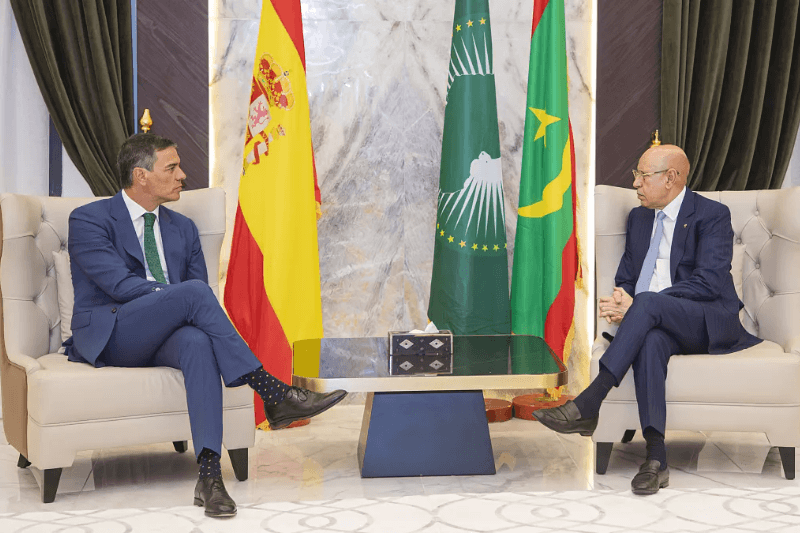Aiming at reducing the rising number of migrants traveling the dangerous Atlantic route to the Canary Islands, Spain’s Prime Minister Pedro Sánchez revealed on Tuesday a series of major agreements with the West African country of Mauritania.
Sánchez described Spain’s strategy to extend its circular migration scheme to include Mauritanian workers during a joint news conference with President Mohamed Ould Ghazouani of Mauritania in Nouakchott. He also underlined the cooperation between Spanish and Mauritanian security agencies to combat networks of people smuggling and trafficking that profit on weaker migrants.
“Migration is not a problem,” Sánchez said, noting Spain’s elderly society’s demand for foreign workers. He underlined the need of properly and safely regulating migration to make sure Spain and the nations from whence immigrants come gain from it.
Along with stops in Gambia and Senegal, Sánchez’s trip to Mauritania fits a larger three-day trip of West Africa. Many of the migrant boats arriving in the Canary Islands make their departure point in these countries. For immigrants and refugees trying to reach mainland Europe, the Spanish archipelago, close to the African coast, is a vital portal.
More than twice the number of arrivals during the same period last year, over 22,000 migrants have arrived in the Canary Islands since January, claims Spain’s Interior Ministry. Many of these migrants are seeking better employment possibilities from nations like Senegal and Mauritania or are escaping unrest in Mali. The flood consists in an increasing number of unaccompanied adolescents, overwhelming local authorities in charge of their treatment.
Once Atlantic sailing conditions are better, Spanish authorities expect even more arrivals in the next fall months. This rise emphasizes how urgently the accords Spain and Mauritania negotiated are needed.
Keep Reading
Sánchez is on his second trip to Mauritania this year. He accompanied European Commission President Ursula von der Leyen in February to unveil a 210 million euro ($235 million) aid package meant to assist Mauritania in managing migration. Known for its stability in the hazardous Sahel area, Mauritania now welcomes about 200,000 Malian refugees along its border.
In his remarks, Sánchez said thanks to President Ghazouani for Mauritania’s ongoing collaboration and declared intentions for a high-level conference between the two countries in 2025. Apart from the migration and security agreements, Spain also started a Spanish-Mauritania business council to boost investment and declared the creation of a branch of the Cervantes Institute in Mauritania to advance Spanish language and culture.

